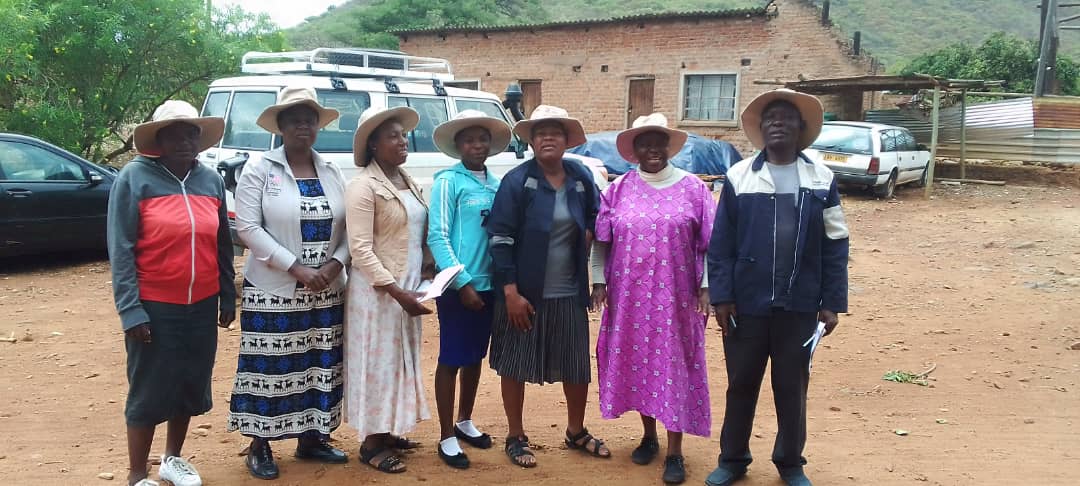|
Getting your Trinity Audio player ready…
|
By Kudakwashe Tagwireyi
The unpredictable weather conditions that were being experienced in Mutasa South District and the persistent cyclones that had ravaged Manicaland, had placed women in the surrounding villages, in the limelight of dependency syndrome to their husbands and the donor community.
Fate however has been in their favour this year as with the aid of the Future of Hope Foundation (TFoHF) founded by Chido Govero, the women have organized themselves to grow mushrooms also known as (groundmeat). The initiative will go a long way in ensuring food and nutrition security in the district.
In an interview, Govero told Spiked Online Media that her organization – a local Private Voluntary Organisation (PVO),was committed to contributing towards solving the development challenges at Zimbabwe’s grassroots.
“Therefore, evidently, TFOHF is a grassroots organization that is committed to contributing towards solving the development challenges of our nation and the world at large. Our work with mushrooms seeks to address challenges related to poverty, droughts, unemployment, lack of income-generating projects, as well as other economic challenges,” she stated.
Mushroom farming in Zimbabwe has been adopted as a business idea that is viable with very low start-up capital requirements needed. It has huge prospects of alleviating the lives of people involved in the business.
“According to the ZIMVAC Report of 2022, it is estimated that the average monthly income for a rural household has decreased from USD 75 in 2021 to USD 57 in 2022. We want sustainable food, nutrition, and income security for everyone regardless of where they are.
“Women and girls should be enabled to start income generation projects, earn their upkeep in a dignified way, and thrive to reach their full potential. We want to promote the protection of biocultural diversity, climate-smart agriculture, and zero-waste,” added Govero.
In October this year, a group of women and men in small-scale farming formed their own union of mushroom growers, right after they had harvested their wheat crop for the season, which offered them enough substrate.
Ministry of Women’s Affairs and Small to Medium Enterprises Mutasa South District Coordinator, Susan Dzirutwe revealed during the side-lines of the meeting of Small scale farmers, in Mutasa South district in Mutare, that was meant to spearhead the creation of an association of mushrooms farmers in the district, that it was critical for them to form an association in response to the call to formalisation by government.
“Forming a mushroom association will enable us to be formalised in our operations as mushroom farmers,” she said.
Mushrooms are known as edible fungi that grow in decaying matter usually referred to as the substrate and in Zimbabwe, there are mainly two varieties that are grown, namely the white button mushroom and the oyster mushroom.
Mushrooms can be used as antioxidants and contain rare nutrients such as selenium, folate, vitamins B1, B2, D, and potassium. They are easy to grow, and along with seeds, one only requires agriculture waste which is available in the form of wheat straw, cottonseed husk, and maize cobs.
Mushroom production is very unique from any other kind of farming, as it requires a lot of research in order for one to come up with better yields in your project.
With the right balance of humidity and temperature, production is very simple.
Mushrooms require very specific environmental conditions for them to grow and the easiest way is by growing them inside an enclosed space, such as a room without access to sunlight.
The room will allow environmental factors such as temperatures, airflow, and humidity to be controlled whilst preventing exposure to direct sunlight and other contaminants.
They take 30 days to mature before harvest and allow for swiftly replenished yields
Self-sufficiency has become the theme amongst many women in most rural communities in Zimbabwe as there are more and more women venturing into the agribusiness of mushroom growing.
It should also be noted that the government of the Republic of Zimbabwe under the supervision of the Ministry of Lands has taken greater strides in making sure that agribusiness is seen by women as a viable avenue of emancipation.
This is being done by promoting the growth of crops such as mushrooms, which have a viable market and are in greater demand by the pharmaceutical industry of Zimbabwe.
Women all over Zimbabwe, especially those from the grassroots, have been urged to be economically independent by the Ministry of Women’s Affairs and Small to Medium Enterprises minister, Sithembiso Nyoni who has been in an overdrive urging SMEs to be formalized.
Future of Hope Foundation (TFoHF) founder Chido Govero, revealed that the forming of associations implied the implementation of SDG 17 which ensured the inclusivity of everyone in Zimbabwe.
